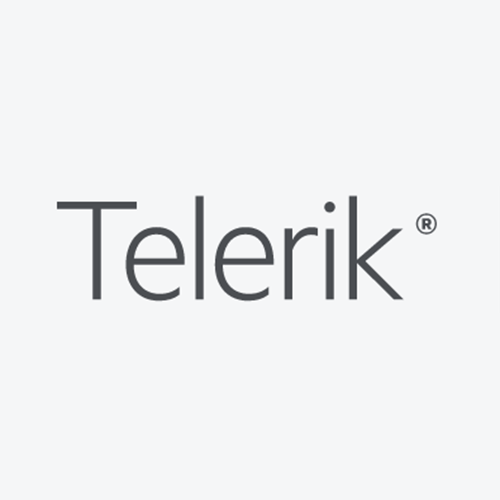Kendo UI目前最新提供KendoUI for jQuery、KendoUI for Angular、KendoUI Support for React和KendoUI Support for Vue四个控件。Kendo UI for jQuery是创建现代Web应用程序的完整UI库。
Kendo UI通过继承基本窗口小部件类为您提供创建自定义窗口小部件的选项。

使用MVVM
1. 为了使该小部件具有MVVM-aware,您需要定义一些事件。具体来说,公开dataBinding事件和dataBound事件。在使用小部件对DOM进行更改之前,将要调用dataBinding事件。这使MVVM有机会遍历将要突变的片段,并取消绑定当前绑定的任何片段。第二个事件是dataBound事件,它使MVVM返回片段,并重新绑定必要的事件,这些事件通过小部件上的事件对象公开。这些事件是字符串,因此在开发Kendo UI窗口小部件时,将它们定义为窗口小部件顶部的常量,作为Kendo UI使用模式的一部分。
通过将这些事件公开为MVVM可以监听的事件,您可以在小部件和MVVM核心引擎之间实现松散耦合。这意味着,如果您不公开这些事件,则MVVM将不会知道窗口小部件的生命周期。 这是一个非常好的架构,这是一个非常好的架构,因为它可以确保您的小部件不会破坏其他不知道的MVVM绑定。
var DATABINDING = "dataBinding",
DATABOUND = "dataBound",
CHANGE = "change"
var Repeater = kendo.ui.Widget.extend({
init: function(element, options) {
…
},
options{
…
},
// The events are used by other widgets ordevelopers – API for other purposes.
// These events support MVVM bound items in the template for loose couplingwith MVVM.
events: [
// Call before mutating DOM.
// MVVM will traverse DOM, unbind any bound elements or widgets.
DATABINDING,
// Call after mutating DOM.
// Traverses DOM and binds ALL THE THINGS.
DATABOUND
]
});
2. MVVM希望您从窗口小部件中公开DOM片段,该片段代表每一行或每个重复的数据元素。您必须返回最外面的元素,MVVM才能使用。虽然有所不同,但这通常只是this.element.children。 由于呈现的每个模板项目都是一个DOM片段,并附加到绑定的元素上,因此您只需要这些。通过使它在Items对象之外可用,将其公开用于MVVM。
var DATABINDING = "dataBinding",
DATABOUND = "dataBound",
CHANGE = "change"
var Repeater = kendo.ui.Widget.extend({
init: function(element, options) {
…
},
options{
…
},
// The events are used by other widgets ordevelopers – API for other purposes.
// These events support MVVM bound items in the template. for loose coupling withMVVM.
events: [
// Call before mutating DOM.
// MVVM will traverse DOM, unbind any bound elements or widgets.
DATABINDING,
// Call after mutating DOM.
// Traverses DOM and binds ALL THE THINGS.
DATABOUND
],
// MVVM expects an array of DOM elementsthat represent each item of the datasource.
// Has to be the children of the outermost element.
items: function() {
return this.element.children();
}
});
3. 由于可以使用MVVM更改数据源,因此需要实现setDataSource函数。 当在ViewModel中设置数据源时,MVVM会调用此方法。 将内部DataSource引用设置为与MVVM传递的引用相等,然后使用已定义的dataSource()函数重新构建DataSource。
// For supporting changing the datasourceover MVVM.
setDataSource: function(dataSource) {
// Set the internal datasource equal to the one passed in by MVVM.
this.options.dataSource = dataSource;
// Rebuild the datasource if necessary or just reassign.
this._dataSource();
}
4. 您需要对分配或构建数据源的方法进行一些小的调整,在init中调用的_dataSource方法可完成3件事:
由于您可能已经在数据源上绑定了一次更改事件,因此请确保在必要时取消绑定。如果不这样做,则小部件将保留所有绑定的列表,并多次执行刷新功能。同样,MVVM将监听尚未定义的内部_refreshHandler函数,您需要将内部_refreshHandler指向公开的刷新方法。不过,请首先检查绑定到DataSource上的change事件的公共刷新和内部_refreshHandler之间是否存在现有连接,如果存在,则仅删除对更改事件的绑定。如果内部_refreshHandler与公共刷新功能之间没有连接,则需要创建它。这是通过$ .proxy jQuery方法完成的,该方法使用正确的上下文(即小部件本身)调用公共刷新。 最后,重新绑定到DataSource的change事件。
如果您以前没有使用过代理jQuery函数,则以下内容可能会造成混淆,在调用_refreshHandler时,它应该执行公共刷新小部件函数,并且在该刷新函数内部,这将是一个指向窗口小部件本身,而不是窗口之类的其他东西。由于JavaScript中关键字的值始终在变化,因此这是确保刷新函数执行时范围正确的一种好方法。
_dataSource: function() {
var that = this;
// If the DataSource is defined and the_refreshHandler is wired up, unbind because
// you need to rebuild the DataSource.
if ( that.dataSource && that._refreshHandler ) {
that.dataSource.unbind(CHANGE, that._refreshHandler);
}
else {
that._refreshHandler = $.proxy(that.refresh, that);
}
// Returns the datasource OR creates one ifusing array or configuration object.
that.dataSource = kendo.data.DataSource.create(that.options.dataSource);
// Bind to the change event to refresh the widget.
that.dataSource.bind( CHANGE, that._refreshHandler );
if (that.options.autoBind) {
that.dataSource.fetch();
}
}
5. 在公共刷新中触发dataBinding和dataBound事件。 请注意,dataBinding发生在更改DOM之前,而dataBound发生在此之后。
refresh: function() {
var that = this,
view = that.dataSource.view(),
html = kendo.render(that.template, view);
// Trigger the dataBinding event.
that.trigger(DATABINDING);
// Mutate the DOM (AKA build the widgetUI).
that.element.html(html);
// Trigger the dataBound event.
that.trigger(DATABOUND);
}
现在,您的窗口小部件中已完全启用了MVVM。 定义小部件,如下面的示例所示。
注意,小部件现在通过数据绑定绑定到ViewModel内部的dataSource变量。 这意味着,如果我们在数据源中添加客户端项,则您的窗口小部件将立即反映更改,而无需重新渲染任何内容。
在下面的完整示例中,请注意将项目添加到数据源时,它会立即反映在Repeater小部件中。
“`dojo
#= data#
“`
使用价值有限的小部件
为了使小部件支持值绑定,您需要:
以下示例演示如何创建一个简单的输入小部件,以选择焦点值。
1. 创建窗口小部件并实现所需的功能。
(function ($) {
var kendo = window.kendo;
var SelectedTextBox =kendo.ui.Widget.extend({
init: function (element, options) {
kendo.ui.Widget.fn.init.call(this, element, options);
this.element.on("focus",this._focus);
},
options: {
name: "SelectedTextBox"
},
_focus: function () {
this.select();
},
destroy: function () {
this.element.off("focus", this._focus);
}
});
kendo.ui.plugin(SelectedTextBox);
})(jQuery);
2. 添加一个value方法。
var SelectedTextBox =kendo.ui.Widget.extend({
…
value: function (value) {
if (value !== undefined) {
this.element.val(value);
} else {
return this.element.val();
}
}
});
3. 触发change事件。
var SelectedTextBox =kendo.ui.Widget.extend({
init: function (element, options) {
…
this._changeHandler = $.proxy(this._change, this);
this.element.on("change", this._changeHandler);
},
…
_change: function () {
this.trigger("change");
},
destroy: function () {
this.element.off("change", this._changeHandler);
this.element.off("focus", this._focus);
}
});
以下示例结合代码片段并展示完整的代码。